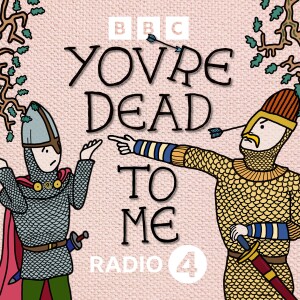Almost 60% of the world’s population live in cities. And this trend is expected to continue - by 2050 nearly 7 of 10 people will live in urban environments.
Although more than 80% of global GDP is generated in cities, there are challenges: increasing carbon emissions and environmental pollution, traffic congestion and urban vulnerability, exposed by natural disasters such as floods and storms.
The creation of a digital twin - a digital representation of a real city, infrastructure or even a whole country - could help decision-makers simulate real situations, allowing them to make better decisions. Situations like floods and other extreme weather events.
We look into the technology and find out what the benefits and limitations are...
And the former foreign minister of Tuvalu, Simon Kofe, explains how climate change has forced his country to consider preserving their whole statehood and culture in the metaverse.
Produced and presented by Ivana Davidovic
(Image: A digital representation of Singapore. Credit: Singapore Land Authority)
More Episodes
Syria: Life after the earthquake
 2023-03-13
2023-03-13
How wearing glasses can improve the economy
 2023-03-11
2023-03-11
The modern pilgrimage boom
 2023-03-10
2023-03-10
Oscars: Celebrity gifting suites
 2023-03-10
2023-03-10
The unbanked
 2023-03-09
2023-03-09
Health apps: Are we sharing too much?
 2023-03-09
2023-03-09
Do attractive people earn more?
 2023-03-08
2023-03-08
Opening up Uzbekistan: Part 2
 2023-03-07
2023-03-07
Opening up Uzbekistan: Part 1
 2023-03-06
2023-03-06
Trains in the USA: Your take
 2023-03-03
2023-03-03
A story of modern slavery in the UK
 2023-03-02
2023-03-02
How Portugal is cycling to success
 2023-03-01
2023-03-01
Unionising the US workforce
 2023-02-28
2023-02-28
Syria: Starting a business in a warzone
 2023-02-27
2023-02-27
The importance of handmade products
 2023-02-24
2023-02-24
Ukraine war: Preserving culture
 2023-02-23
2023-02-23
Ukraine war: Refugees and resilience
 2023-02-22
2023-02-22
Ukraine war: Refugees starting again
 2023-02-21
2023-02-21
Ukraine war: Economic fallout
 2023-02-20
2023-02-20
Turkey earthquake: What is the future for young people?
 2023-02-16
2023-02-16
Create your
podcast in
minutes
- Full-featured podcast site
- Unlimited storage and bandwidth
- Comprehensive podcast stats
- Distribute to Apple Podcasts, Spotify, and more
- Make money with your podcast
It is Free
You may also like

The Business Of


Global News Podcast


The Infinite Monkey Cage


Friday Night Comedy from BBC Radio 4


You’re Dead to Me


Elis James and John Robins

- Privacy Policy
- Cookie Policy
- Terms of Use
- Consent Preferences
- Copyright © 2015-2024 Podbean.com



 iOS
iOS Android
Android